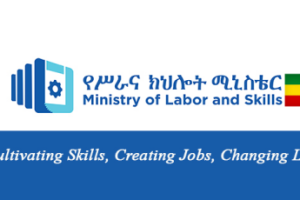
BY GETACHEW MINAS
In an endeavor to avert the post war political, economic and social crises, various civilian groups should assist the Ethiopian government. It is high time that Ethiopians redirect their attention away from the TPLF driven internal infantile trifles and trivialities and focus on strong unity to eliminate poverty. The goal of eliminating poverty requires determination on the part of all concerned entities. Among these groups are the “retirees” and senior persons who should assume the responsibility for devising a mechanism of engaging themselves in active duties in their respective occupations. Post war economic and social reconstruction requires immense human resources ready to participate in the economic development of the country. In so doing, the only remuneration the retirees derive is the “satisfaction” from assisting their people in post war economic and social developments.
At the initial stage, retired professional Ethiopians should organize themselves into groups to discuss and develop post war economic and social policies. These policies have to be translated into programs and projects for resource allocations. Resources include land, labor, capital, information technology, Diaspora funding and management. Some of these are derived from local sources. “Land” is, for example, abundant if there is a physical plan that includes valleys, such as Awash River Valley, for which an Authority had been created in the past. These resources may be managed by “retired” professionals, who had impressive achievements in the past. “Labor” resources may constitute the registered unemployed youth, returnees from battle fronts, skilled workers and technical operators. “Capital” is derived from both private and state sources, which will be managed by qualified retired personnel only. Of course, all these come under the coordination of the relevant sector Ministries.
Overall coordination is left to the PM Office or other macro sector authorities. This is necessary to avoid duplication of efforts and resources, both local and external. The Ethiopian post war recovery plan is a joint effort between the citizens and the government. Prior to implementation of the recovery plan, there is, however, a need for financial strategy that is needed for executing the recovery process. Soliciting of external financial support is required to finance import of “productive” inputs. The government, including the private sector, should seek for friendly foreign sources of finance. These sources of finance may provide “soft” loan with low or no interest and longer period of loan repayment. These efforts demand efficiency of the financial sector of the economy for the proper and timely flow of funds.
Without the coordination of local and external flow of fund, the goal of economic and social development of the country may “not” be achieved as planned. The new input in the traditional financial management is the involvement the “professional retirees.” These joint efforts are a novelty as they originate from professional retirees, including those in the Diaspora. The latter one are believed to bring in, apart from funding, new ideas into the economy of the country. The retirees constitute professionals that are educated locally and abroad. Those trained abroad come from different countries with a variety of orientations. They are experienced not only in development planning, but also in executing and implementing these plans.
The retirees have the capacity to implement and manage programs and projects in different parts of the country. These projects are numerous and varied in their nature. They are, however, preconditions for identifying development sites and building of infrastructure for accessing projects related to agriculture, industry and services. Agricultural projects are essential for the production of food, supply of raw materials to the manufacturing industry and for export. These projects provide employment opportunities and earn foreign exchange. Also, industrial and service projects are the backbone of the economy of Ethiopia.
Government and private sector participants have to fulfill their joint obligations for policy, program and project coordination and implementation. Implementation is totally dependent on availability of resources or funds from sources that are committed to the post war recovery of the country. Funds for specific projects, especially those designed to develop and rehabilitate infrastructure are prerequisites for further development. These funds have to be accompanied with technical assistance to promote production and productivity to achieve the goal of development. In this respect, the role of the private sector has to be guaranteed with and approved by the allocation of both local and foreign currency to be used in line with the post war recovery plan of Ethiopia.
There is a direct connection between external assistance and development outcome. This however, requires a stimulus for a chain of events that lead to a series of performance. At the completion of the plan period, the goals of agricultural, industrial and services sectors should be achieved with success. Coordinated measures that are relevant to sector goals have to be taken for guaranteeing success. These measures would have great impact on the chain of performances that are amenable to close inspection. Performance inspection ensures achievement of the economic “recovery” plan, programs and projects. Based on inspection report, serious “corrective” measures that include containment and arrest of economic saboteurs should be taken and made public.
The Ethiopian recovery plan is believed to contribute to more positive political and economic stability, which help reduce and “remove” the strength of the irredentist and anarchist political junta, the TPLF. The junta had subjugated millions of people into abject poverty to weaken their resistance against its inhuman rule. In the wake of the defeat of the junta, the government, fully supported by skilled but retired professionals, would be able to resuscitate the post war economy of Ethiopia. The new recovery plan of Ethiopia will generate ambitious efforts that will stimulate economic growth. It will arrest the spread of poverty through encouraging healthy and stable economy in the country.
The recovery plan will be designed to accomplish its goals by achieving the following objectives. The primary objective is to expand agricultural and industrial production. It has also the objective of restoring sound financial strategies to finance sector programs and projects. There is a need to link the domestic market with the international one for securing foreign exchange through trade. These are important objectives that have to be achieved with institutions that have clear post war strategies of sector development. These strategies have to be designed in such a manner that ensures balanced development of economic and social sectors. Here, “balanced” does not mean that all the sectors have to be equally treated. Some sectors have more weight than the others and resource allocation should be based on that.
Historically, disabled, aged, unemployed, refugees and dependents have been skipped from development plans. These social groups shall be included in the recovery plan as they are citizens that deserve respect by other able bodied persons. Given the opportunity, they may contribute to economic progress as scientists, designers, computer programmers and other specialists. A good example of such achievement is Stephen William Hawking, an English theoretical physicist, cosmologist, author and researcher, who died in 2018, after making immense contribution to humankind. Disabled Ethiopians should, therefore, be encouraged to attend schools and achieve their goals in life. In the post war period, disabled soldiers who defended the independence of their country from both internal and external intruders, invaders and trespassers and anarchists shall be treated with great honor and respect by each and every Ethiopian.
Any development plan, including post war recovery plan, is based on its potential relevance to the present events as well as to those of the recent past. It is, therefore, necessary to understand the history and circumstances under which plans had been implemented in Ethiopia in the past. These may include causes for failure in achieving development plans that seemed “impressive” on paper. Frank assessment of past performances is a guide to future feasible, viable and practicable plans. The modality of “implementation” of past plans is also a guide to any future ones. What the plan sought to achieve, how it was implemented and the resulting success or failure have to be openly discussed. Participants of this discussion are retirees who volunteer to engage in post war recovery plan without any remuneration. Poverty eradication from Ethiopia is a spiritual remuneration for the professional retirees.
People’s ownership of recovery plan, programs and projects requires a government strategy of coordinating resources with detailed and concrete activities. The formulation of coordination of activities has to be a joint effort that includes retirees. Plan implementation is the sole domain of the government. The government should, however, present its implementation report to the concerned group and to the parliament that approved the domestic recurrent budget. This procedure guarantees people’s participation and ownership of programs and projects implemented in their environs and localities. This binds government and people in a united effort for achieving economic independence that guarantees political and social freedom.
The design, implementation and ownership of post war recovery plan should have the goal of reduction and elimination of poverty. For a development plan to be realistic it should be citizen-centered; it should also be primarily dependent on its local resources such as people and natural endowments. External assistance comes into the country only to fill a minute and infinitesimal resource gaps within economic sectors. These gaps need “not” be filled by alien personnel that pretend to manage the foreign assisted development programs. Such personnel only replace local experts that are low paid but knowledgeable about the economic problems of their own country. Local experts had been avoided by the TPLF.
The alien experts have no values to add to the economic development of Ethiopia, as they have other missions to dutifully perform. They spy on the political situations and the natural and human resources of the country. Both these resources are goldmines for donors. Labor is cheaply employed by foreign investors while natural resources are searched with remote sensors for external exploitation. Ethiopia is endowed with both open and underground resources. It has plenty of rivers that could be used for power generation and agricultural development. If these resources are exploited and used to improve the living standards of the Ethiopian people, alien forces would be scared. These natural resources have been cheaply exported by the TPLF businessmen in their “raw” form to finance the high standard of living they enjoy at home and abroad. The post war recovery plan should, therefore, be designed and implemented with the Ethiopian resources, independent of TPLF bugs and viruses.
THE ETHIOPIAN HERALD AUGUST 26/ 2021





